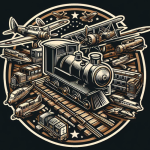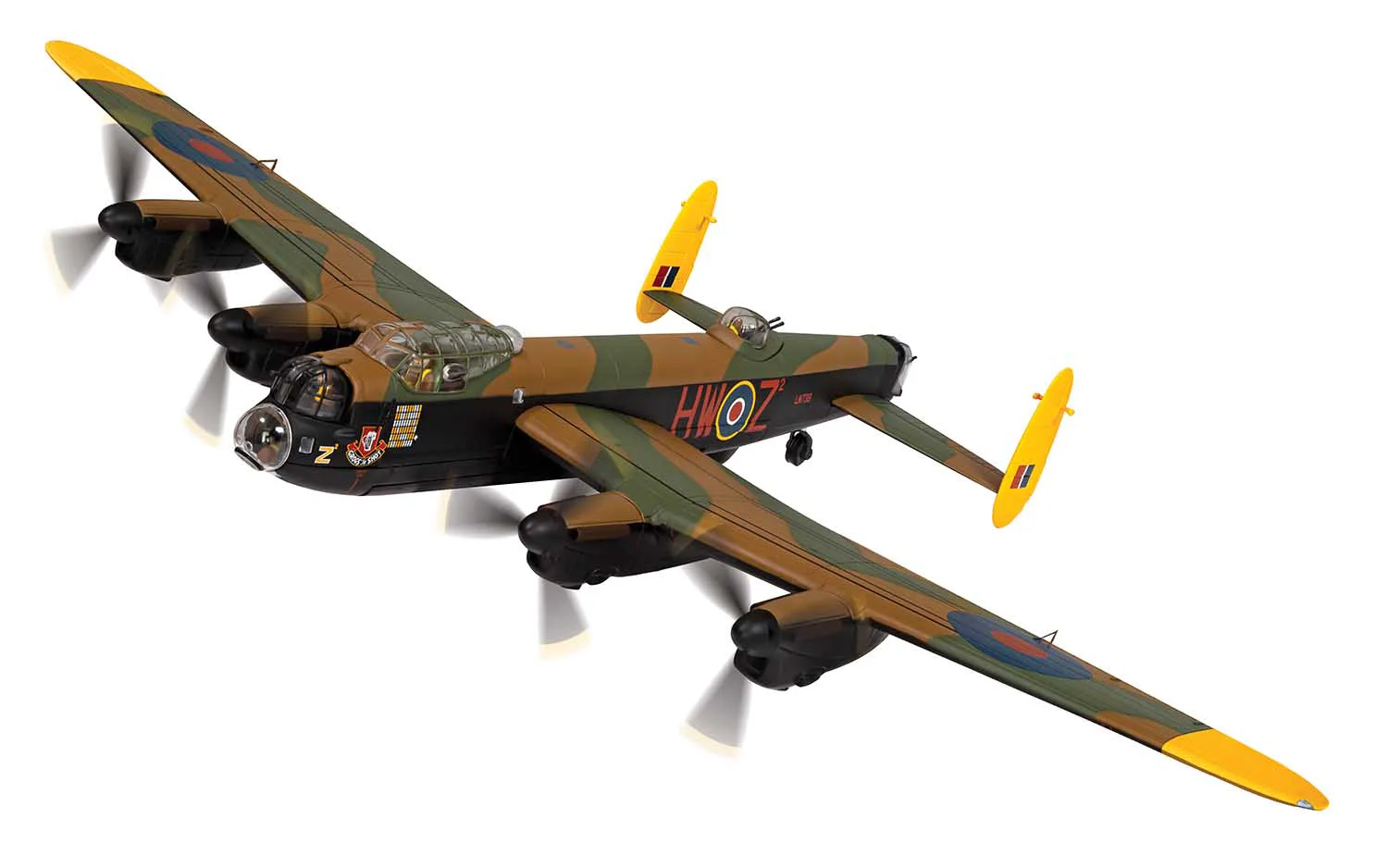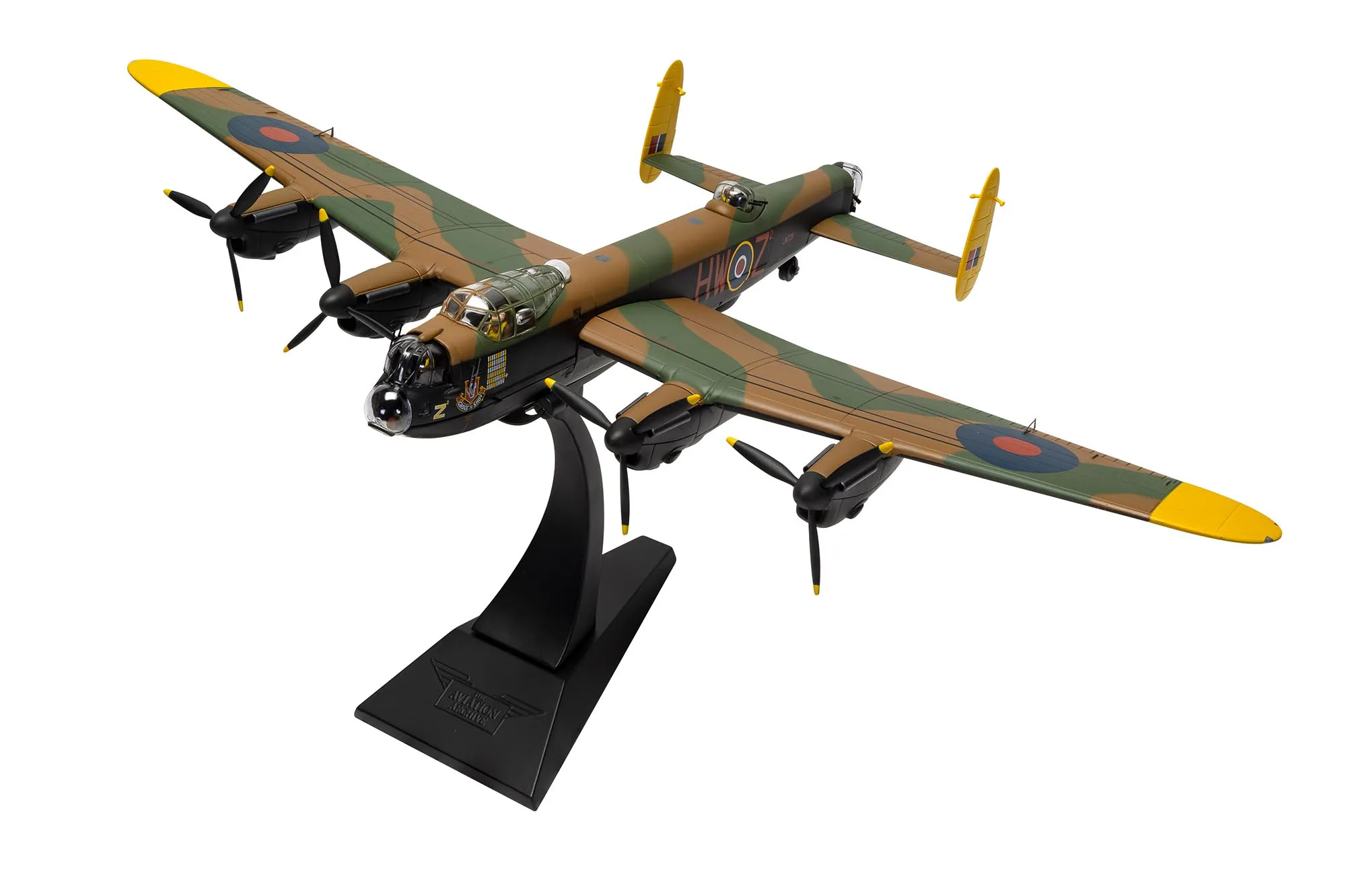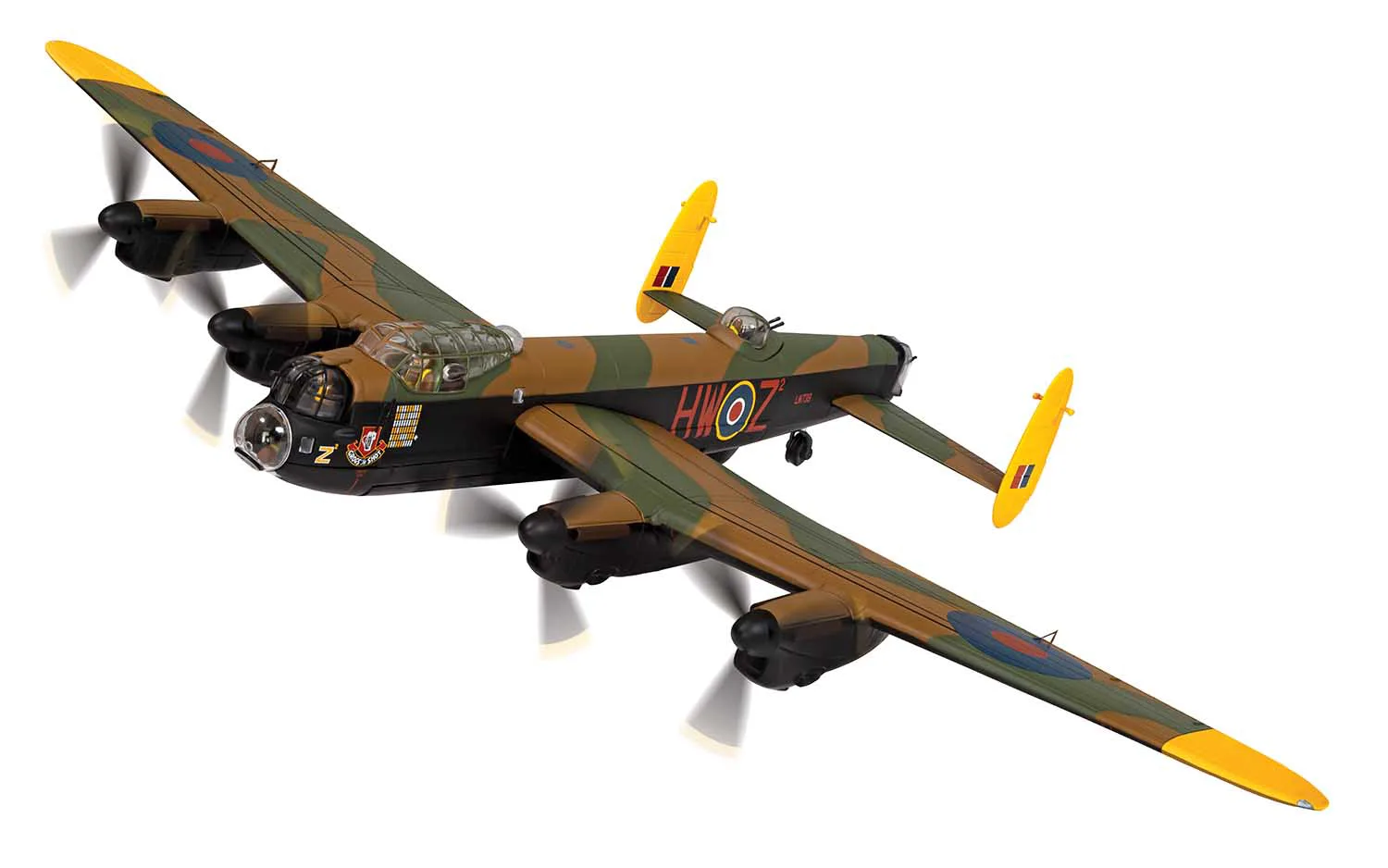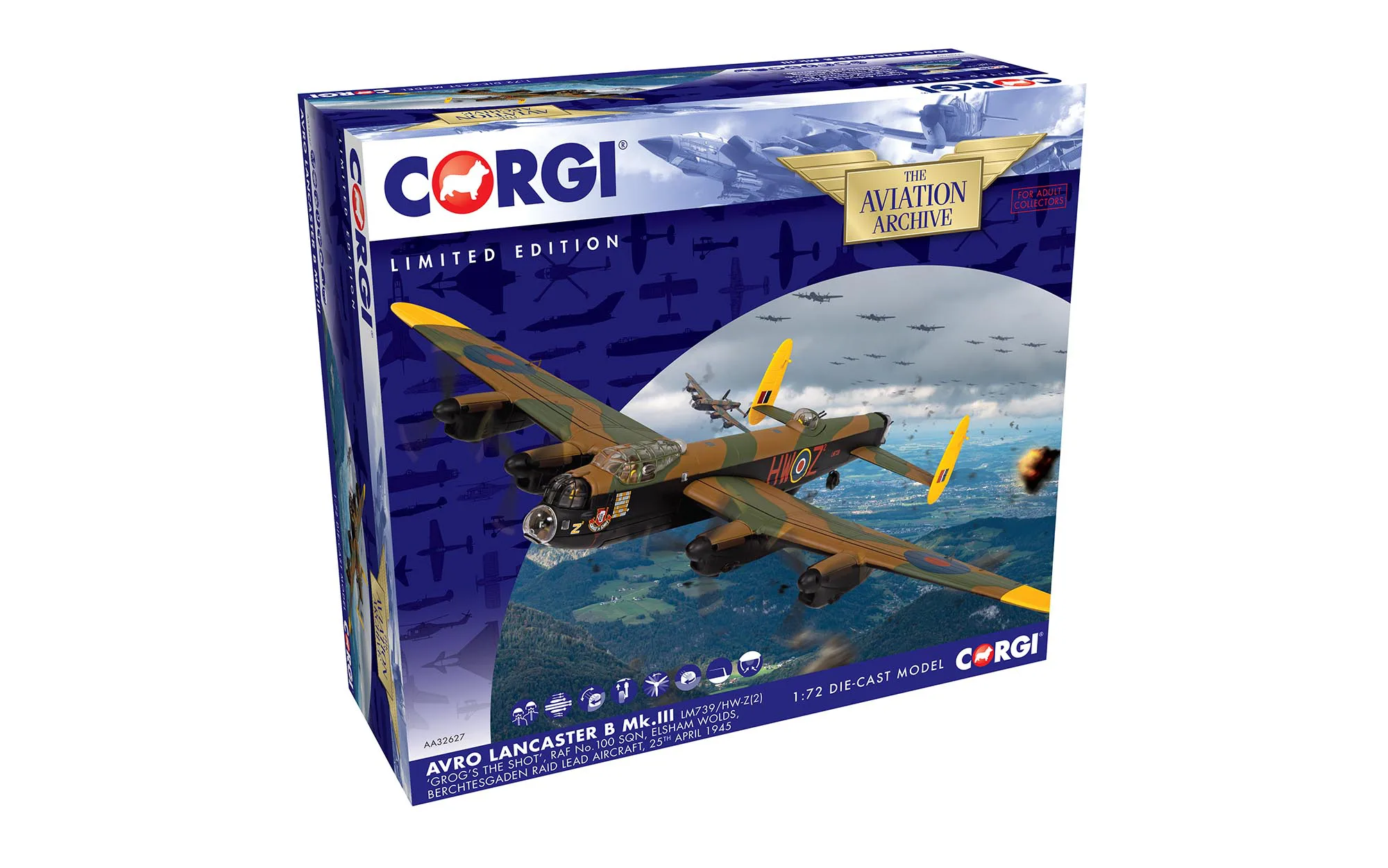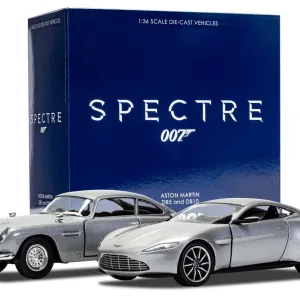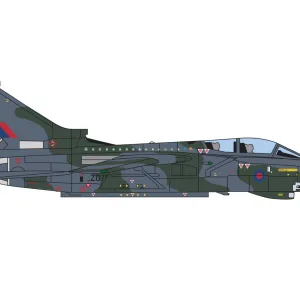Avro Lancaster B Mk.III – LM739 / HW-Z(2) – ‘Grogs the Shot’ – RAF No.100 Squadron – Elsham Wolds – 25th April – 1945
During the closing stages of the war in Europe, the men of Bomber Command were given one final opportunity to strike at the very heart of the hated Nazi regime and potentially bring about an early cessation of hostilities. Mounting a major raid against Hitler’s famous Berchtesgaden Alpine retreat would mean a long and dangerous daylight mission for the bomber crews, however, they would be targeting chalets and lodges belonging to the Nazi party elite and at briefing, they were told that intelligence reports suggested the Fuhrer may be seeking refuge there, awaiting the end of the war. In fact, senior Allied planners knew Hitler was in Berlin, but did not want Berchtesgaden to become a Nazi shrine, or a rallying point for continued resistance.
At the head of the raid, the experienced crew of Avro Lancaster LM739 ‘Grog’s the Shot’ would be leading a joint force of more than 300 Lancasters, 16 Mosquitos and 270 USAAF Liberators, with the formation covered by 90 Mustang fighters. As well as firing Verey flares during the mission and trailing yellow pyrotechnic stars from the rear turret to assist with formation and navigation, the aircraft was also distinctively painted with yellow wing tips and rudder/vertical stabilisers, signifying its position as a lead aircraft and an elite crew. The crew would have the honour of leading the last major ‘main force’ Bomber Command raid of the war in Europe.
Constructed at the Avro shadow factory at Yeadon, Lancaster LM739 was delivered to RAF No.100 Squadron at Waltham in September 1944 and despite being relatively late in the war, this aircraft would go on to see plenty of action over the coming months. When the Squadron re-located to RAF Elsham Wolds in April 1945, they found that there was already a Lancaster there coded ‘Z for Zebra’, so LM739 had the addition of a small number 2 after her Z, on both her main fuselage codes and nose identification letter.
Featuring distinctive nose artwork on both sides of the aircraft’s forward fuselage, this Lancaster served as a lead aircraft on daylight bombing operations, as indicated by the yellow identification markings on the top and bottom of the wing tips and both sides of the rudders and vertical stabilisers. ‘Grog’s the Shot’ would go on to complete 60 operational missions before the end of the war, including serving as a lead aircraft during the raid against Hitler’s Berchtesgaden retreat on 25th April 1945, Bomber Command’s final major ‘main force’ raid of the war in Europe. It would also complete five ‘Operation Manna’ food supply flights and one ‘Operation Exodus’ POW evacuation flight, before ending up at an RAF Maintenance Unit, where it was stripped of useable parts and ignominiously scrapped, like so many other former wartime aircraft.
